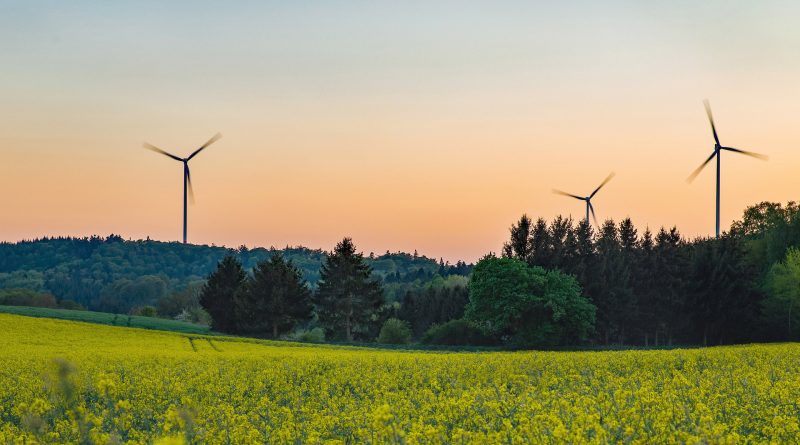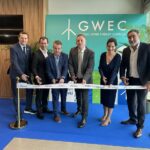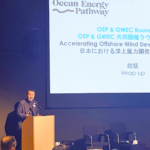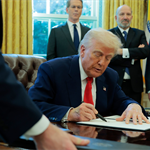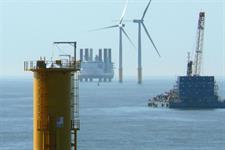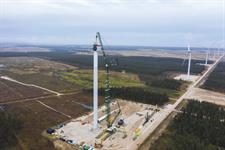Member’s News: Global Energy Transformation Entering a New Era
Energy Disrupter

Member’s News: Global Energy Transformation Entering a New Era
Due to the impacts of COVID-19, product delivery in China’s wind power industry was severely affected in the first quarter of this year. The situation was improved in the second quarter thanks to the Chinese government’s effective control of the outbreak, and the product delivery process gradually caught up. Take Goldwind as an example: deliveries in Q2 increased by more than 10 per cent compared to the same period last year, which is a record high. For the Chinese wind industry as a whole, wind farm developers, turbine manufacturers and component suppliers did have also not revised their original targets set before the pandemic.
“Although the wind industry has been affected by the global outbreak, we have received strong support from international component suppliers to overcome the difficulties. Through this pandemic, we are deeply aware that the energy transition will enter a new era, and feel a strong yearning for renewable energy and green development”, said Mr Wu Gang, Chairman of Goldwind.
The uncertain post-pandemic era has bred a certain new era of green development, and the impact of the outbreak has awakened the urgency and importance of the global energy transition. Pandemics, floods, droughts and other natural disasters have brought great loss to mankind. These disasters and the loss of our environment as we know it is constantly reminding humankind of the need to accelerate CO2 emissions reduction and control the process of global warming. Only in this way can a sustainable and better life be achieved. Renewable energy industries are related to the sustainable development of society and the yearning for a better life for millions of families.
Uncertain markets also breed a definite new market. People must change the way they exploit, produce and use energy, choosing a new model that has no impact on the environment. The Chinese government has proposed a scheme for energy transformation: promoting energy transformation in an all-round way from the demand side, the supply side, technology, social systems and global cooperation. Energy transition is global, not a national issue.
At present, the world has reached a consensus on reducing fossil fuel consumption and pursuing sustainable development. Many state-owned and private enterprises in China are now engaged in the business of renewable energy.
On 22 September, Chinese President Xi Jinping announced at the U.N. General Assembly that “China aims to have CO2 emissions peak before 2030 and achieve carbon neutrality before 2060.” President Xi also called on all countries to pursue innovative, coordinated, green and open development for all, seize the historic opportunities presented by the new round of scientific and technological revolution and industrial transformation, and achieve a green recovery of the world economy in the post-COVID era.
As a representative industry of renewable energy, China’s wind power industry has achieved remarkable results after decades of rapid growth. China has also become the world’s most important wind market. However, with the withdrawal of government subsidies, the wind industry in China is facing new challenges and the market will decline in the short term. Along with the development of renewable energy, China has established a complete industrial supply chain. Local governments also expect the wind industry to stimulate investment, employment and tax revenue, therefore the wind market will remain important for the country’s overall economy.
China’s wind market is entering an era of parity. The advent of the parity era is a great driving force for innovation in technology and management. The cost reduction mainly comes from innovation in products, a breakthrough in raw materials and improvement in efficiency. The costs will continue to decline as industrial technologies (better testing and inspection capabilities optimise turbine design and better design in motor and blade), raw material technologies (magnetic steel technology, carbon fiber technology, and aluminium alloy technology), control theory and technology, and efficiency in the production process are consistently improved.
Global cooperation is particularly important for the steady development of the wind industry. Many component suppliers, including blades, generators and gearboxes, have made China a supply base for international turbine manufacturers.
Goldwind’s overseas business has also been affected by the pandemic, such as projects in Brazil, Argentina and Australia. Goldwind has reduced the impact through close cooperation with local companies in various countries. In the long run, Goldwind will continue to adhere to the internationalisation strategy and contribute to the local economy through business development.
As Churchill said: “Don’t waste a ‘good’ crisis”. After the COVID-19 pandemic, global energy transformation will enter a new era. Goldwind will also continue pursuing the mission of “Innovating for a brighter tomorrow”, provide more green electricity to the world and help in global energy transformation.

